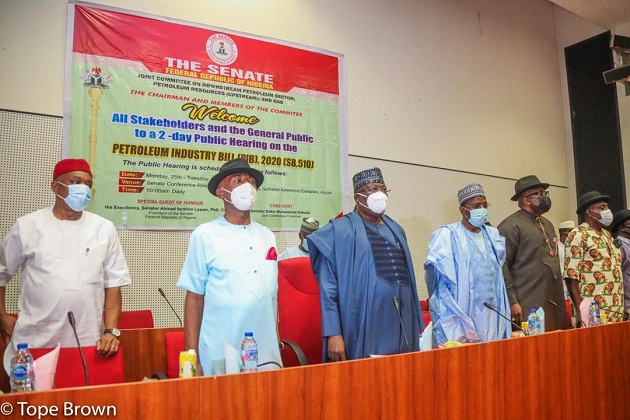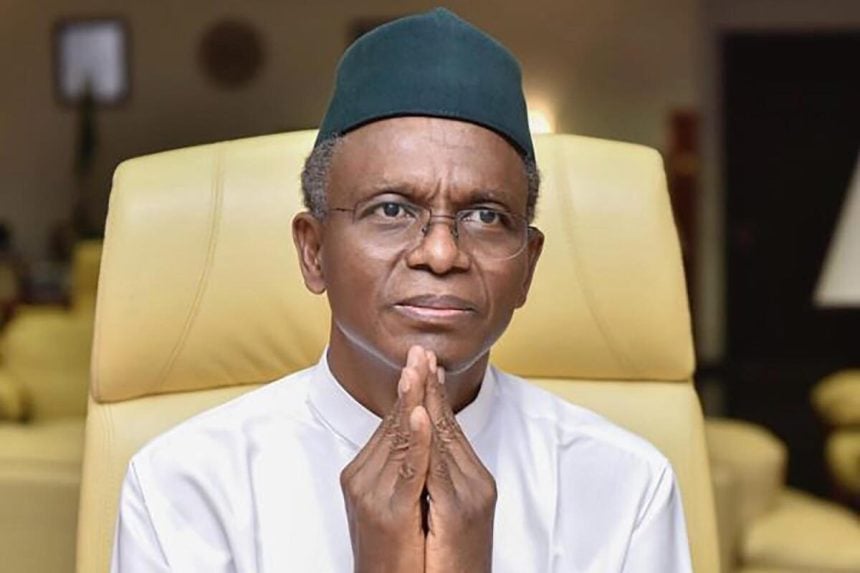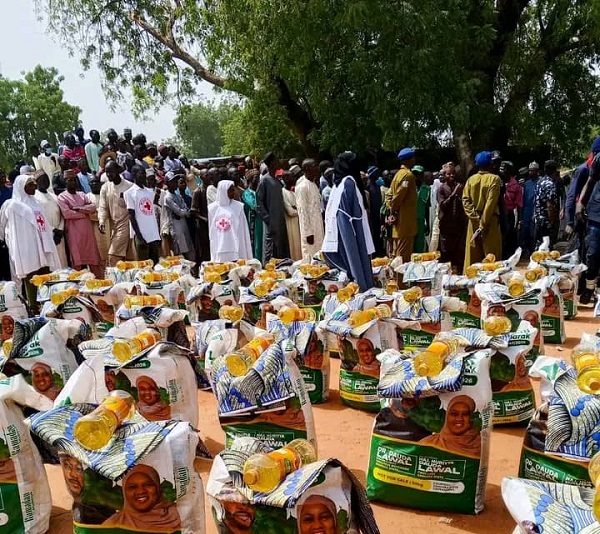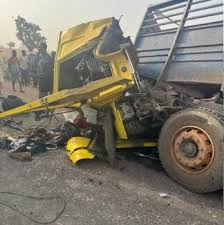Stakeholders demand amendment to PIB as Lawan lists benefits

Tunde Opalana, Abuja
Challenging issues were on Monday raised by stakeholders in Nigeria’s oil and gas sector at the opening of a two day public hearing on the Petroleum Industry Bill 2020, (SB, 510 and HB 1061) at the National Assembly.
Organised by the Joint Committees on Downstream, Upstream and Gas of the Senate and House of Representatives, the public hearing was meant to collate input to reform and strengthen the nation’s oil and gas sector.
Members of Host Communities of Nigeria Producing Oil and Gas (HostCom) , the umbrella body and the interest of all communities producing oil and gas in Nigeria insisted on having ten percent equity share in proceeds of oil and gas production in the country.
This is part of the submissions made by the host communities on Monday at the opening of a two – day public hearing by the National Assembly.
They also demanded that host communities should collect penalty on gas flaring as they are directly affected by the negative impact of gas flaring
High Chief Dr. Benjamin S. Tamaranebi, National President, in a summary of positions submitted at the public hearing said “the Host Communities stand on 10% equity share holding.
READ ALSO: Some forces working to frustrate PIB – Senate President
After 60years of marginalization and bearing the brunt of the negative impacts of exploration and exploitation.
“Today some states have started discovering and enjoying their natural resources but the producing states and HostCom are not envious of them therefore our position is sacrosanct.
It will be very absurd and economically very illogical to deprive HostCom the right to equity share holding in both the establishment of the NNPC Limited, the Commission, the Authority and the Boards.
“Rather than attempt to sell performing equity as stated in the 2020 PIB. No equity/asset is performing more than our oil and gas reserves. This quest to take over complete control of all our national assets by a very unpatriotic few has to stop.
“In the case of the Gas flare penalty funds, the Host Communities who are the direct recipient of the negative effects are the ones to receive the Gas flare penalty.
“Regarding the environmental management and sustainable development of the Host Communities, it’s imperative that all laws and polices precedent to the commencement of any active must be conformed with the existing international standards inherent in our submission.
“In spite of the aforementioned, the omission and neglect of the issues in the 2020 PIB as noted and recommended by the HostCom presentation as highlighted should be considered as aforemention and inserted in the 2020 PIB.
“If Nigeria must divest or privatize our oil and gas assets, then the host communities must have the rights to first refusal before you open up the sale or bid to other Nigerians because the oil and gas in Nigeria, indeed, belongs to the producing states and host communities in the first place”.
The Oil Producers Trade Section (OPTS) among other concerns raised said it is unfortunate that the Deepwater provisions do.not provide a favourable environment for future investments and for the launching of new projects.
In the address presented by its Chairman, Mike Sangster, the OPTS said “Deepwater developments which has contributed significantly in maintaining Nigeria’s oil production levels by offsetting the decline in the Joint Ventures production still witnesses undeveloped resources and challenged with tightening of fiscals and uncertainty in gas terms”.
To ensure investors are encouraged to finance Deepwater projects, the OPTS suggested that the PIB “should grant Deepwater oil projects a full royalty relief during the first five years of production or a graduated royal scheme as detailed in our submission.
“PIB should also remove Hydrocarbon Tax considering that companies will still be subject to CIT”.
The traders also raised concern that the PIB does not address the key challenges facing gas development in Nigeria such as inadequate midstream infrastructure, regulated gas pricing, huge and long outstanding debts etc, thereby potentially jeopardizing the realization of government’s aspiration for the domestic gas sector.
Rather, the OPTS wants the PIB to “provide a clear path for transitioning to free market – based pricing, not add additional compliance conditions on domestic gas delivery obligations as a precondition for export gas supply and allow pre -existing contracts and agreements to run their course”.
A civil society organisation, Women in Energy Network (WIEN) disagreed with the demand of 2.5% of actual operating expenditure by host communities.
President of WIEN, Mrs Funmi Ogbue in her presentation said “WIEN believes that 2.5% is too expensive.
WIEN posits that a total of not more than one percent consistent with other statutory provisions like the Nigerian Local Content Act 2010, replace the current figure captured in the PIB.
“This will improve investors’ perception about the industry being already over taxed which will attract even more Foreign Direct Investment to the sector and country at large”.
Meanwhile, Senate President, Ahmed Lawan while declaring open the public hearing, said that the Petroleum Industry Bill (PIB) presently before the National Assembly will ensure that Nigerians benefit optimally from crude oil production and sale of fossil fuel reserves.
According to the Senate President, the National Assembly in its consideration of the piece of legislation, would ensure that the bill when passed into law, guarantees improved revenue earnings for the country.
Lawan said, “let me say this, we (National Assembly) will pass this bill not without ensuring that it is a bill that satisfies certain conditions.
“Nigeria is blessed with these resources, we want Nigeria to benefit optimally from them. In fact, we are in a hurry because we have lost so many years of benefits that we could have had.”
The Senate President, however, noted that the non-passage of the PIB had been a major drag on the industry over the years, significantly limiting its ability to attract both local and foreign capital at a time when many other countries are scrambling to exploit their oil and gas resources.
“The mere knowledge that the nation’s oil industry is still being governed by laws enacted more than 50 years ago is ludicrous and extremely disappointing.
“As legislators, we will strive to deliver a Bill that will enhance the growth of our oil and gas industry, modernize our fiscal system and enhance competitiveness, while creating harmony for all stakeholders. This is a promise we have made and that we shall achieve.
“Nigeria must have an Oil and Gas Industry that benefits its people. Equally, our Oil and Gas Industry must be competitive.
We must create a sustainable investment climate, where business in the sector will flourish,” he said.
The Petroleum Industry Bill comprises of four chapters that outline how to create efficient and effective governing institutions with clear and separate roles for the petroleum industry; establish a framework for the creation of a commercially oriented and profit-driven National Petroleum Company; promote transparency, good governance and accountability in the administration of the petroleum resources of Nigeria among others.










